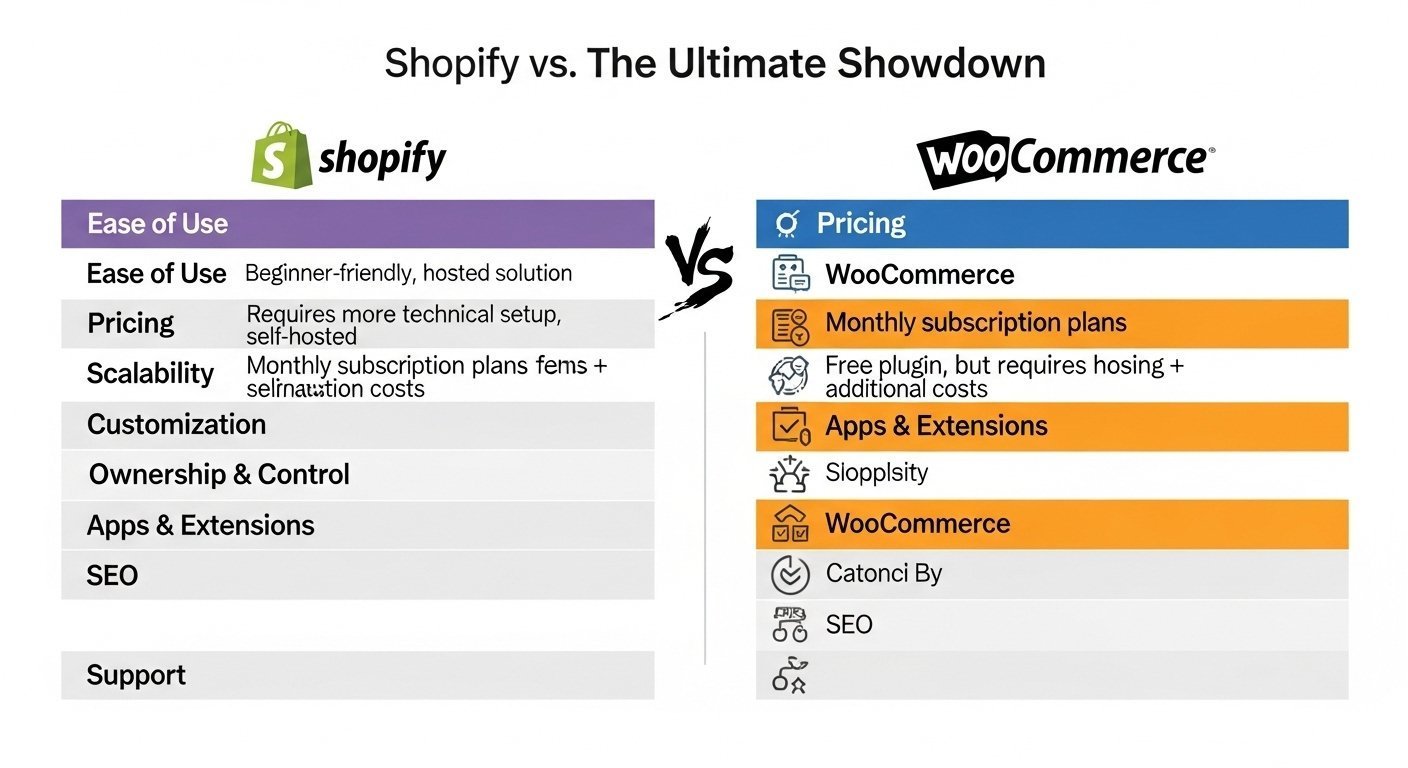Shopify vs. WooCommerce: Which E-commerce Platform is Right for You?

Choosing the right e-commerce platform is a critical decision for any online business. Two of the most popular options are Shopify and WooCommerce. Both offer robust features for selling online, but they cater to different needs and technical skill levels. This detailed comparison will help you understand the strengths and weaknesses of each, so you can make an informed decision for your online store.
Shopify: The All-in-One Hosted Solution
Shopify is a fully hosted e-commerce platform, meaning they handle all the technical aspects like hosting, security, and maintenance. It's known for its ease of use and comprehensive features.
Pros of Shopify:
- Ease of Use: Very beginner-friendly with a drag-and-drop interface. No coding required for basic setup.
- All-in-One Solution: Includes hosting, security, payment processing, and customer support.
- Scalability: Easily scales with your business, from small startups to large enterprises.
- App Store: A vast ecosystem of apps to extend functionality.
- Support: 24/7 customer support.
Cons of Shopify:
- Monthly Fees: Subscription-based pricing can add up over time.
- Transaction Fees: Additional fees if you don't use Shopify Payments.
- Less Customization: While customizable, it offers less control over the underlying code compared to self-hosted solutions.
If you're looking for a hassle-free, all-inclusive solution, Shopify might be the right choice for you. You can learn more about getting started in our Shopify for Beginners guide.
WooCommerce: The Flexible WordPress Plugin
WooCommerce is a free, open-source e-commerce plugin for WordPress. It gives you complete control over your store, but requires more technical expertise as you're responsible for hosting, security, and maintenance.
Pros of WooCommerce:
- Flexibility & Control: Full control over your website's design and functionality.
- Cost-Effective: The plugin itself is free, but you'll need to pay for hosting, domain, and potentially premium themes/plugins.
- WordPress Ecosystem: Access to thousands of WordPress themes and plugins.
- SEO Friendly: WordPress is inherently SEO-friendly, and WooCommerce integrates well with SEO plugins.
Cons of WooCommerce:
- Technical Expertise Required: Requires more technical knowledge for setup, maintenance, and troubleshooting.
- Hidden Costs: While the plugin is free, costs for hosting, security, and premium extensions can add up.
- No Dedicated Support: Support is community-based or relies on your hosting provider/developers.
Key Differences at a Glance
| Feature | Shopify | WooCommerce |
|---|---|---|
| Ease of Use | Very High | Moderate to High |
| Pricing Model | Subscription-based | Free plugin + hosting/addons |
| Hosting | Included | Self-hosted (requires separate provider) |
| Customization | Good (via themes/apps) | Excellent (full code access) |
| Support | 24/7 Dedicated | Community/Developer-based |
Which One is Right for You?
- Choose Shopify if: You want an all-in-one, easy-to-use solution, prefer less technical hassle, and are willing to pay a monthly subscription for convenience. Consider our Shopify Pricing Guide to understand the costs.
- Choose WooCommerce if: You already use WordPress, want maximum control and flexibility, are comfortable with technical aspects, and prefer an open-source solution.
Still undecided? Explore both platforms to see which fits your business best!